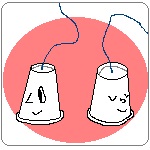風鈴さんの おぼえた日記 - 2015年12月28日(月)

この日記をフォローしているユーザ
この日おぼえたフレーズ(英語・中国語・ハングル)
おぼえた日記

Considering women and marriage through the lens of the surname 12/28
女性と結婚を姓というレンズで考える
I increasingly use email during the course of my work, and I sometimes inadvertently type in the wrong name. For example I might accidentally call someone whose last name is Fujimoto as Fujiki -- which contains an extremely similar second kanji character -- or use the wrong first character for the surname Mifune.
●increasingly ますます ●inadvertently うかつな ●accidentally ふとしたことから
仕事のやり取りでメールを使うことが多くなったが、つい相手の名前を間違ったりしてしまうことがある。たとえば、藤本さんを「藤木さん」、三船さんを「美船さん」という具合にだ。
Sometimes, I realize my mistake after I have sent the message, but there have likely been other times that I remained unaware of the error.
●unaware of the error エラーに気づかないで
後から気づいて「しまった」と思うこともあるが、こちらが気づかないこともあるだろう。
Occasionally, I will get a return message saying something like, "My last name is Fujimoto, not Fujiki." And while it is obviously impossible to read someone's feelings through email, there are times when the tone of such a message suggests the person has been somewhat offended.
●occasionally ときたま ●obviously 明らかに ●suggest 示唆する
●somewhat いくぶん ●offend 感情をそこなう
しかしときどき、「私の名前は藤本ではなく藤木です」などと伝えてくれる人もいる。メールだからその心情まではわからないが、文面からするとちょっと機嫌をそこねているのかな、と思うこともある。
Because mistaking someone's name is clearly impolite, I respond by apologizing and saying something like, "Please forgive me. I have been experiencing the onset of farsightedness due to age, and I made a mistake reading your name on your business card."
●impolite 不作法 ●respond 応じる ●apologize 誤る ●onset(病気が)始まる
●farsightedness due to age 年による遠視➜老眼
もちろん、名前を間違えるなどというのは失礼なことだから、こちらも「たいへん申し訳ありません。老眼が進んでおりまして、名刺のお名前を読み間違えてしまいました」などと言い訳しながら、謝ることになる。
In every instance where I have received such a message, it has been from a man. Most likely, their surnames are something very important for them. In that case, then, I think that they should be able to imagine to at least some extent the feelings experienced by women who must change their surname following marriage.
そういうメールをくれるのは決まって男性だ。きっと自分の名前をとても大切にしているのだ。だとしたら、結婚して姓をまるごと変えなければならない女性の気持ちも、少しは想像できるのではないだろうか。
Presently in Japan, 96 percent of marrying couples end up using the husband's surname. The assertion that a man and woman who are marrying may choose whose last name to adopt is a mere formality, since women don't really have a choice.
いまの日本では、結婚する男女はだいたい96%が男性側、つまり夫の姓を名乗ることになる。「結婚する男女で姓を選べる」というのは建前で、実際には女性には選択肢などないのだ。
A friend of mine once said to me, "My family believes very strongly in the divination associated with the number of strokes used in the kanji of one's name, and my first name was chosen after careful consideration of the total number of strokes in combination with my last name. But changing your last name following marriage changes the entire number of strokes -- and a fortune-teller told me after calculating the number of strokes in my new name that it was the least auspicious figure possible."
●divination 占い ●least auspicious figure 最も少ない吉兆のかたち➜最悪の運勢
●possible 見込み
かつて友人がこんなことを言っていた。「私の親族は字画占いにこだわりが強くて、私の名前も姓名全体の画数を考え抜いてつけられたものなんだよね。でも結婚して名字が変わることになったら、画数も変わっちゃうでしょう。それでもう一度占ったら最悪の運勢なんだって」。
At the urging of her relatives, my friend ended up using different characters for her first name. She once smiled wryly and said to me, "Both my first and last names ended up changing."
●urge 勧める ●wryly しかめた顔で ●end up 最後には
結局、彼女は親族のすすめで名前も漢字を変え、「姓も名も変わっちゃったよ」と苦笑していた。
Many people advocate for men and women being able to choose separate surnames following marriage, as working women find it professionally inconvenient to change their names. However, I assume that there are also numerous women without jobs who have no desire to change the family names that they have become familiar with, and/or who are fond of the combination of their first and last names.
●advocate 主張する
選択的男女別姓を主張している人の多くは「仕事をする上で女性が姓を変えるのは不便だから」と言っているが、仕事をしていない女性の中にも、ずっとなじんできた姓を変えたくない、自分の姓と名前の組み合わせが好き、という人はたくさんいるのではないだろうか。
For this reason, I find it odd to assume that it is unproblematic for non-working women to change their surnames after marriage.
●odd 変な ●assume 決めてかかるのは ●unproblematic 問題はない
「仕事をしていない女性なら姓を変えても問題ないでしょう」という考えはおかしいと思う。
Sometimes, women at my clinic say to me with a smile, "My last name has changed." In such cases, however, I assume that it is the marriage itself that they are happy about -- not their new family name.
診察室でも「今度、名前が変わったんです」と笑顔で報告する女性もいるが、彼女は結婚がうれしいのであって、改姓そのものがうれしいわけではないだろう。
I once saw a man say with a straight face, "Every woman is happy about changing her surname to that of her husband." This statement caused me to reconsider the following questions: What does it mean to be a woman? And what does it mean to get married?
メディアで「女性であれば誰でも夫の名字になるのは喜び」と真顔で言う男性もいて、「女性って何だろう。結婚って何だろう」と改めて考えさせられた。
ミニ散歩
ネタ切れです。















そいえばアジア?は別姓で全然違和感がありませんね。毛沢東の奥さんで江青夫人っていました。まったく姓が違っても違和感0です。アウンサースーチがマイケル・スミスさんと結婚しても名前は変えませんね。kimihoさんの仰るとおりです。自己責任で自分で決めるのが一番いいと思いますし、そうすべきですね。ヒラリーさんがアメリカの大統領になったら、クリントン大統領とはいわないでしょうね。
This article you choose or your opinion is very interesting.
Actually I had a lot of same experiences.
I agree that mistaking first name is being rude.
It means we consider first name is important.
I’m living in Shanghai now, there is no need for Chinese women to Change their surname.
In my opinion, now days there are a lot of choices for us.
So I think you can do whatever you want.
But I also think you should assume your responsibility.
ほめていただいてはずかしいです。夏は30分位のミニ散歩をほぼ毎日やっておりましたが、冬はほとんど歩いておりません。(汗!)休みの日に撮りだめしております。が今休みですが、面倒なので車を使ってしまします。この写真は近所のお家で無断で撮りました。知り合いの家なのでまあいいかです。(汗!)今日はしめ縄を作っています。(娘たちですが)
散歩に出て、花、鳥、自然の素晴らしさに感動、生活スタイル素敵です。
花の名前がわかりませんでした。ありがとうございます。アオイ系でした。アブチロンでした。
風鈴も娘が2人です。風鈴の弟も娘が2人です。家が貧乏なので婿がとれませんので、風鈴家の姓は無くなります。風鈴のおじさんも娘2人ですが、お金持ちなので、養子をとります。長男の出来が悪いと家はまた貧乏になりますが、娘の場合はできの良い人を婿にすれば、お家は安泰です。お相撲さんとお金持は女が生まれると喜びます。
本当にネタ切れです。没の写真もありません。今日の写真は昨日何の花かなあ?と思い撮りました。明日はその時撮ったモクレンの花芽が一枚あります。夫婦別姓は日本もミドルネームを採用したい人は採用すれば?なんて思っております。
この黄色い花は、今頃咲いているならアオイ科の仲間のアプチロンではないかと思います。黄色の花は初めてです。
50代女性だそうです。
分かる気がします(^_^;)
ネタ切れのお写真 とても素敵なものが多いですね。
風鈴さんのセンスがいいからですね!(^^)!